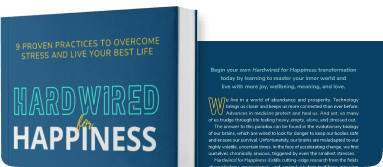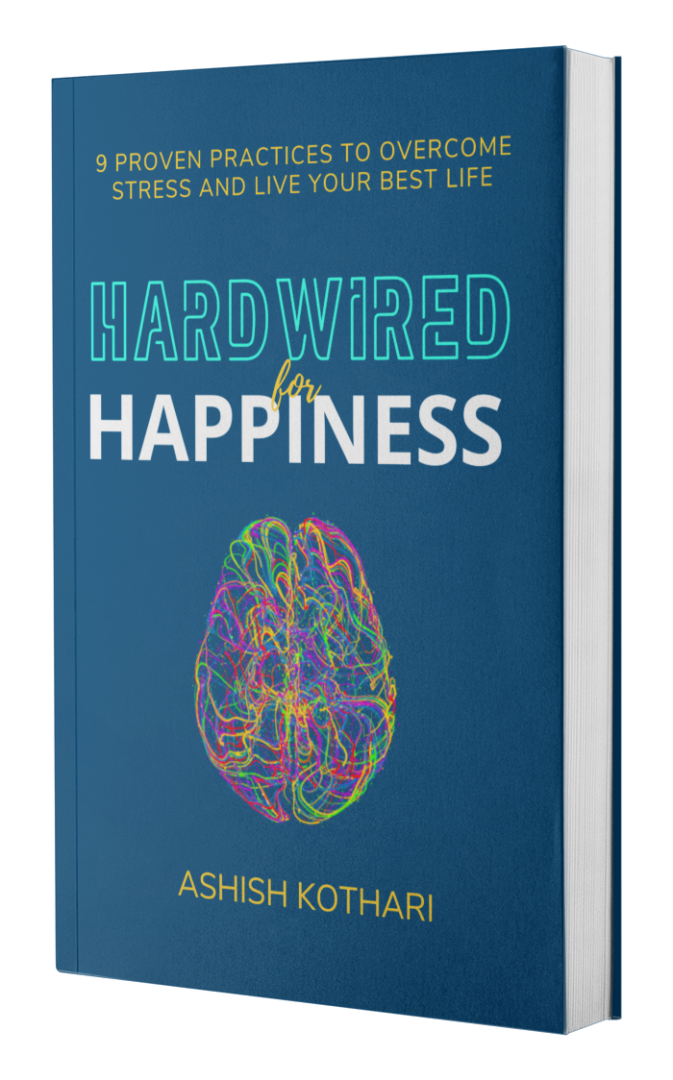Conscious Healing at Work with Ashish Kothari and Susan Schmitt Winchester

In the professional world, many of us carry the weight of our past experiences, often without realizing it. This often surfaces as a persistent sense of stress, burnout, and a nagging feeling of inadequacy in our roles, which hinders our ability to excel in our work.
In this article, Ashish Kothari and Susan Schmitt Winchester, Senior HR Advisor for Applied Materials, delve into an effective solution for these challenges: the practice of conscious healing at work.
“What you need is the gravitational pull of the ‘why,’ the purpose, to pull you out of the gravitational pull of fear.”
– Ashish Kothari
Self-Discovery and Self-Acceptance
When stepping into new roles in the workplace, it’s natural to sometimes feel like you’re not quite measuring up. But when these doubts start to weigh in heavily, they can hold you back from showing your full potential at work.
The key to overcoming these doubts lies in acknowledging and appreciating your strengths and worth. Remember true confidence comes from within, not from external validation.
“When you start to take back your own power and work on your relationship with yourself, you become much more aware as a leader, and the size of the monster starts to get much smaller.” – Susan Schmitt Winchester.
– Susan Schmitt Winchester
Susan shared a valuable exercise for this journey of self-discovery: Reflect on how others might view you as an animal. Are you seen as the assertive ‘lioness’, commanding respect, or more like the ‘puppy dog’, constantly seeking approval?

This isn’t about judging yourself; it’s about understanding your current self-perception and how you might want to evolve it. Keep in mind, that you have the power to shape your identity. This self-awareness is a powerful tool for building the confidence you need to thrive in your role.
Understanding ASDP and Its Impact in the Workplace
Constantly feeling inadequate and seeking approval at work can be draining. It pushes you to do more but leaves you feeling like it’s never enough. That’s no way to live your career.
“Being completely connected to and constantly on for work takes all of your focus, energy, and love away from all the things you should be focused on. And that is not a way to live a career.”
– Susan Schmitt Winchester.
But these struggles stem from deep-rooted beliefs formed in the past, and coping with them can be incredibly draining. If this resonates with you, you might be an ASDP (Adult Survivor of a Damaged Past). The term ASDP encapsulates a unique set of experiences and responses:

- ‘A’ represents adults who, despite being in professional settings, often revert to childhood coping strategies like overachieving or people-pleasing when triggered. Recognize that we can understand the impact of our past, but it doesn’t have to control how we behave in our present and future.
- ‘S’ signifies Survivor, highlighting resilience and unique strengths like keen observation and preparedness, born from challenging experiences.
- ‘D’ refers to the damage from a dysfunctional past and the harmful self-beliefs it often instills.
- Finally, ‘P’ is for past, emphasizing the need to acknowledge our history without letting it dictate our present and future, moving away from an “unconscious wounded career path” towards a more conscious and fulfilling professional journey.
The journey to conscious healing and growth at work begins with recognizing and confronting these behaviors. This awareness paves the way for developing healthier coping strategies that ultimately boost our careers.
How Childhood Experiences Shape Adult Coping Mechanisms
Our past, especially our childhood, significantly shapes our behavior as adults. Susan points out that those of us from dysfunctional childhoods have certain beliefs about ourselves and about other people, that aren’t always necessarily positive.
This impacts how we cope with life’s challenges, particularly in the workplace. While some adapt well, others struggle. Some even use anger as a way of managing a sense of safety for themselves, but this can be problematic in a professional setting.

All of us have experienced moments growing up where certain people may have impacted us. But we don’t have to be defined by it, says Ashish. The core message of conscious healing is having awareness, which means we just need to become aware of the experience and hold it with compassion, not judgment for ourselves or the people around us.
Walking the Conscious Healing Career Path
According to Susan, the conscious healing career path is about recognizing the link between our past beliefs about ourselves and the coping strategies we developed, and how these impact our professional lives.
Understanding these connections, especially when triggered in the workplace is crucial, so that we don’t revert to the fight, flight, freeze, mentality, or people-pleasing behaviors.
“The journey is from within: recognize, discover, and make a shift. And it’s not easy to do it unless you actually work on regulating your emotions and downregulating from a fight, flight, freeze, amygdala hijack moment to one which is grounded.”
– Ashish Kothari.
Most of us want to avoid conflict at all costs, but Susan believes that conflict is a huge catalyst to healing. Susan and Ashish highlight that waking the conscious healing career path involves recognizing that your reactions and feelings are within your control.
The goal is to become aware of these emotional responses and use practices like sound, movement, and breath to process and regulate them.
Conclusion
Despite the availability of resources to embrace conscious healing at work, there’s still a gap in applying these healing practices effectively. We have all the opportunity to embrace these practices, and all it takes now is taking the first step. Ashish reminds us that every moment that we are alive is an opportunity to heal, to repair, and to renew.
So let your true self and purpose speak louder than the fears from your past, and let it drive you to become the consciously healed version of yourself and thrive in your career.
Susan Schmitt Winchester is the Senior HR Advisor for Applied Materials and the former Senior Vice President and CHRO of the same company. With over 36 years in corporate HR, she specializes in creating inclusive cultures and driving company performance.
Susan is also the CEO and Founder of Healing at Work and the author of “Healing at Work: A Guide to Using Career Conflicts to Overcome Your Past and Build the Future You Deserve.”
Learn more about Susan at her LinkedIn.
Listen to the podcast with Andrew and Ashish below.
Access and subscribe to all of the episodes of the Flourishing Edge Podcast here.
Visit the REWIRE Program powered up by the HAPPINESS SQUAD Community and experience your shift within your 30-day risk-free trial today. Cultivate your Self-Awareness, Gratitude, Purpose, Community, and personal growth more through the 9 Hardwired for Happiness practices. Integrate simple and proven micro-practices grounded in the science of happiness and neuroscience of habit formation in 5 minutes a day.
Make Flourishing Your Competitive Edge.


